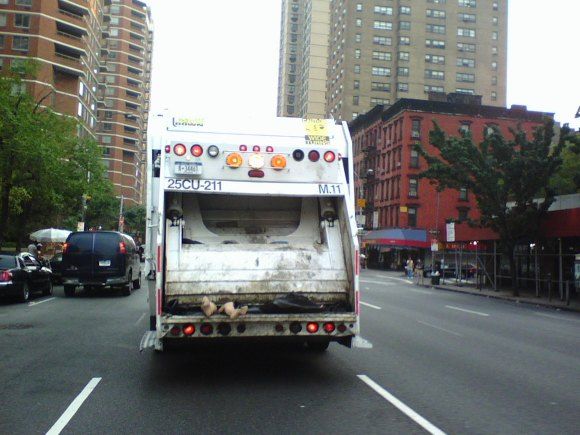If UES Waste Transfer Station May Triple City’s Garbage Costs, What Does That Mean For Proposed Local Facility?

A study highlighting the exorbitant cost of a proposed waste transfer station on the Upper East Side may provide ammunition for activists, community members, and pols fighting the planned Gravesend Bay waste treatment facility.
The study, conducted by the Independent Budget Office [IBO], found that the proposed UES garbage station would triple Manhattan’s garbage disposal costs, reports the New York Post:
The IBO said trash that now costs $93 a ton to ship to New Jersey and Yonkers for incineration would cost $278 a ton via the transfer station, which is under construction.
Over the next 20 years, the city could expect to pay $632 million, instead of $253 million, to get rid of Manhattan’s garbage, the report continues. The largest expense is attributed to the cost of building the facility and hiring employees to operate it. In addition, the UES facility would transfer trash via waterways, rather than the current railway system, which accounts for a jump in export costs.
Whether these figures are relevant to the proposed Gravesend Bay Marine Waste Transfer Station (1824 Shore Parkway, between Bay 41st Street & 26th Avenue) depends on the contract bids the city gets for the it, said Justin Bland, a budget analyst at IBO.
“The only big increase that I could see, that is unexpected, is if the long-term 20 year contracts are much more expensive than the current short term contracts,” said Bland.
The actual Southwest Brooklyn waste station will be cheaper; it is projected to cost $176 million in capital funds, considerably less than the $217 million UES facility. In addition, the Gravesend plant would process much more trash, reducing the overall processing expense per ton of trash.
Earlier this year, UES and Gravesend community members teamed up to protest proposed waterfront waste stations in their respective neighborhoods, arguing that the most effective way to manage the city’s waste is to increase recycling.




